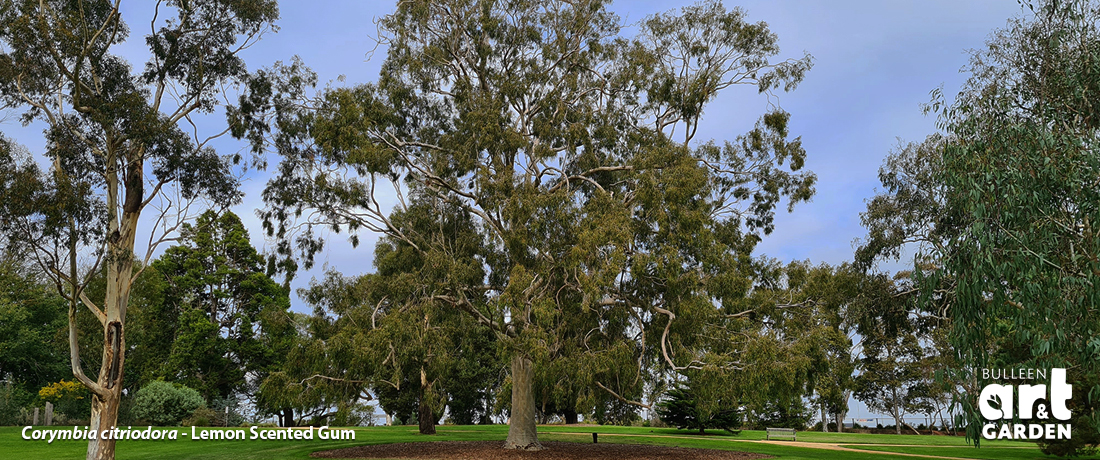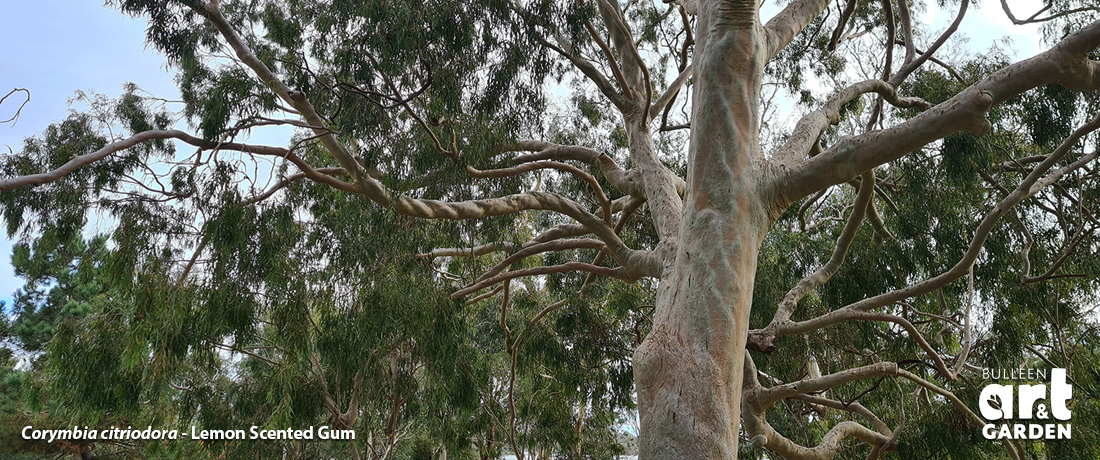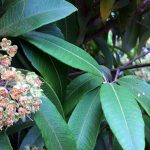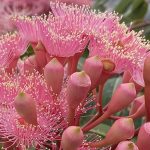
Popularised in the 1970s, these beautiful trees rapidly became a Melbourne favourite. Whilst the strong lemony citrus scent is an obvious plus, it is the elegant vertical form of the tree, with its strong straight smooth trunk combining with an open spreading canopy and long slender weeping leaves that has cemented Corymbia citriodora as one of Melbourne’s best loved native trees.
Interestingly, as the decades have rolled on, the older trees have retained their smooth bark but have developed a fascinating muscularity. Their youthful elegance has moved into a muscular maturity adding a degree of stateliness to their appearance.
In Queensland they may reach 40m, but in Victoria Corymbia citriodora reliably mature around 20m. When planting this tree, keep in mind mature trees can occasionally drop a limb, especially after long hot dry periods.
Bark colour ranges from near white grey, through creams, greys, pinks and copper tones. In spring, shedding bark can give it a temporary attractive mottled look, as the fresh creamy white bark shows through (at this time, easily confused with Corymbia maculata, or Spotted Gum).
Flowers are creamy white and start in early winter moving into spring, however, flowering in December, January and April has also been recorded. Providing both pollen and nectar, at times you can hear the humming of contented bees as they forage. The pollen is a valuable resource for brood rearing honeybees, which takes on extra significance as Bee Colony Collapse Disorder threatens colonies worldwide. Honey from Corymbia citriodora is pale to medium in colour and with a good flavour. Also popular because it is slow to thicken and granulate (crystallises).

Commercially grown for both its timer and volatile Citronellal Oil (not to be confused with Citronella Oil), as well as for honey production. The timber is long and straight and has many and varied uses: power poles, housing and flooring timbers, and tool handles are some. Leaves are crushed for the Citronellal Oil, also with many and varied uses: insect repellents, candles and fragrances, cosmetics and medicines.
Tolerant of a wide range of soils and climate conditions, but not tolerant of frosts when young. Like many Corymbias and Eucalypts, this is a fast growing tree. Consider giving additional water in prolonged hot dry spells, this may help reduce the chance of limb drop. Likes a sunny location.
 Important note about plant availability. Important note about plant availability.There are hundreds of factsheets on our website provided for your information. Not all plants will be available at all times throughout the year. To confirm availability please call (03) 8850 3030 and ask for the nursery. |


